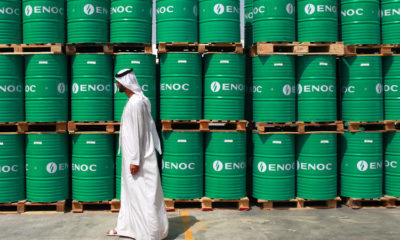Stakeholders in the economy and power sectors in Nigeria have revealed that the newly inaugurated 10-megawatt Kano Solar Power Project is the nation’s largest grid-connected solar PV plant.
To this end, they said the project, which was unveiled on Monday by President Muhammadu Buhari has many benefits to the nation’s economy.
According to the Nigeria Sovereign Investment Authority (NSIA) which funded the project with the sum of $ 16 million, the plant would catalyse growth in the power sector and also transform the economy.
NSIA, in a statement, said quality job was carried out on the project which was described as the current largest grid-connected solar PV plant in the country, adding that its quality installation was an evidence of successful mid-sized solar PV deployment in Nigeria.
Specifically, the investment authority said the project would bring about development in the power sector and that more investors would pick interest in the country.
The agency also noted that the project would promote Nigeria’s credentials in the fight against climate change and make it more committed in its efforts at attaining net zero carbon emissions by 2060.
Another stakeholder, Umar-Sadiq, noted that the solar project would usher tremendous impacts in the nation’s energy sector, of which ripple effects would be felt in the economy.
Sadiq disclosed that the socio-economic and environmental impacts the plant would fetch to the country would draw international effects, adding that the country’s at providing access to clean, affordable, and sustainable energy to local industries and other consumers would be fastly met.
Also, Sadiq pointed out that more jobs would be created through the plant and thereby reducing the unemployment rate of the country.
Already, he said the project had provided about 2,000 direct and indirect jobs to the Kano community that hosted the plant, saying more than 21,000 solar PV panels, two 6MVA transformers and 52 inverters, a warehouse and storage building, control room, office and workshop, among others would be added.
Meanwhile, giving more insights into the project and its inauguration by the President, NSIA said it was appointed by Buhari to provide funds and manage it.
NSIA added that the President had given it a specific mandate to conceptualise, develop, construct, and operationalise the 10MW solar project on a 24-hectare parcel of land in Kumbotso Local Government Area of Kano State.
While disclosing that President Buhari expressed delight at the sophistication of the equipment used for the plant, the agency said that Haske Solar Company Limited, the project vehicle whose name means light in the Hausa language, was jointly owned by the Federal Government, Kano State Government, and the host LGA.
Investors King reports that the inauguration event of the solar plant was also attended by the Governor of Kano State, Umar Ganduje; Minister of Finance, Budget and National Planning; Zainab Ahmed; Chairman of NSIA Board of Directors, Farouk Gumel; Managing Director, NSIA, Aminu Umar-Sadiq, among others.


 Naira4 weeks ago
Naira4 weeks ago


 Naira4 weeks ago
Naira4 weeks ago


 Naira3 weeks ago
Naira3 weeks ago


 News4 weeks ago
News4 weeks ago
 Travel4 weeks ago
Travel4 weeks ago




 Naira4 weeks ago
Naira4 weeks ago


 Jobs3 weeks ago
Jobs3 weeks ago
 Naira3 weeks ago
Naira3 weeks ago



















